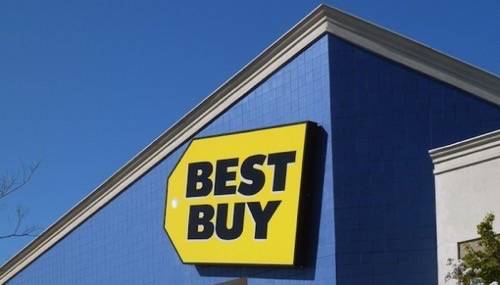
Shareholders of struggling electronics retailer Best Buy may get a way out of a bad situation. The chain’s founder Richard Schulze, who stepped down as chairman in June, has sent a letter to the company’s board offering to take the company private as it faces its “moment of truth.”
What Schulze Offers
The letter, made public on Monday, says Schulze would offer $24 to $26 a share for Best Buy, which at the high end represented a premium of 47% over the stock price at the time and places a value of $8.8 billion on the company. The future of Richfield, Minn.-based Best Buy has looked grim since reporting a net loss of $1.23 billion for the year that ended in March.
Amazon and other online retailers have had Best Buy against the ropes for sometime. Rather than actually buy at Best Buy stores, many customers have been using them as showrooms for electronics they then purchase for less on the Web. The disruption caused by online retailers is forcing Best Buy to close 50 big-box stores in the U.S. this year in order to cut costs.
The 71-year-old Schulze believes he’s the man to right the ship, provided he can take the company private. In a statement, he didn’t mince words on where he sees Best Buy. “There is no question that now is the moment of truth for Best Buy and that immediate and substantial changes are needed for the company to return to its market-leading ways,” Schulze said, according to The New York Times. “I am deeply concerned that further delay and indecision will cause additional loss of both value and talented leaders who are now uncertain of the company’s future.”
What the Letter Says
In his letter, Schulze said he would take the company private with the help of his financial adviser Credit Suisse Group AG. Schulze says he has been in talks with interested private equity firms and former Best Buy senior executives, including Brad Anderson and Allen Lenzmeier, the Times reported.
“Bold and extensive changes are needed for Best Buy to return to market leadership,” Schulze wrote. “The company’s best chance for renewed success will be to implement these changes under a different ownership structure.”
What Schulze Isn’t Saying
While Schulze has not indicated exactly what he would do differently to save Best Buy, he is willing to put up his own assets. He owns 20% of the company and says he would contribute $1 billion in equity from that stake.
If Schulze is successful, the buyout would be the largest ever, beating out Capital IQ’s $8.4 billion buyout of Toys “R” Us in 2005, according to S&P. Like Best Buy, Toys “R” Us was also looking at catastrophe brought on by competition with online retailers.
The Amazon Effect
Amazon’s impact on retailers with large investments in brick-and-mortar stores has been dramatic. In a report released last month, Forrester Research said the online retailer has become the first stop for shoppers. Almost a third of online buyers said they started researching their last online purchase on Amazon, the analyst firm said.
The Amazon threat is only expected to increase as the company opens more fulfillment centers near major metropolitan areas. This is expected to eventually enable same-day or next-day delivery, giving shoppers one more reason to avoid the hassle and time of shopping in a store.
What Going Private Will – and Won’t – Do
The disruption in retail that’s bringing down Best Buy is unlikely to wane. Simply taking the company private won’t change the market dynamics. “Ultimately, being private or public will not make a difference in itself,” said Forrester analyst Brian Walker. “It will not change the ways Best Buy and many other retailers need to innovate to respond to changes in the market.”
What going private would do is remove the pressure of having to report continuous increases in quarterly sales and profits. Freedom from Wall Street’s expectations would give management time to build a much larger Internet presence, spend more on digital marketing and beef up the supply chain to deliver products faster.
All of that is a tall order, and even if Schulze and his investors are successful in buying the company, they will have to spend a lot more to build a chance for a successful turnaround. But Shulze is right that business as usual is the path to doom for Best Buy.
Image courtesy of Shutterstock.





















